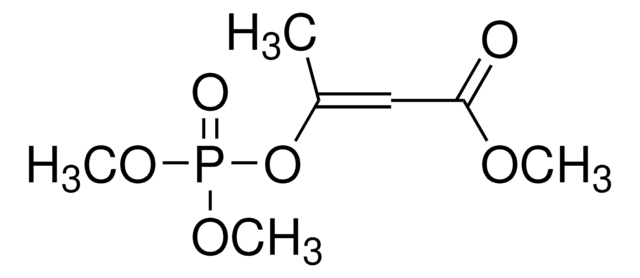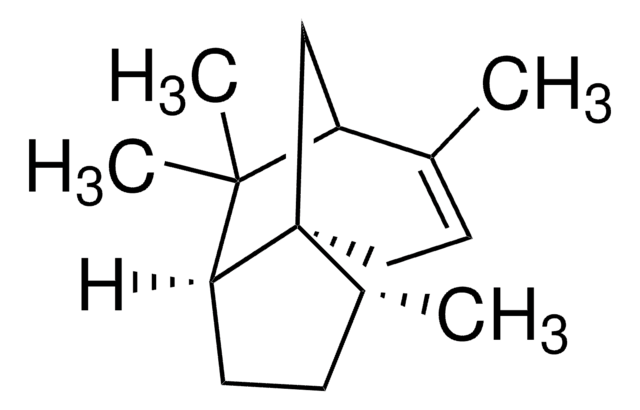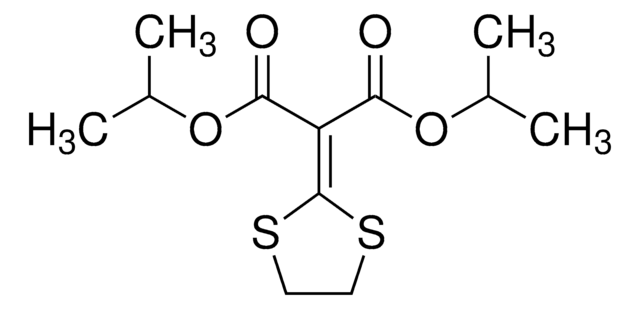33395
Methamidophos
PESTANAL®, analytical standard
Synonyme(s) :
O,S-Dimethyl phosphoramidothioate
About This Item
Produits recommandés
Qualité
analytical standard
Niveau de qualité
Gamme de produits
PESTANAL®
Durée de conservation
limited shelf life, expiry date on the label
Technique(s)
HPLC: suitable
NMR: suitable
gas chromatography (GC): suitable
Impuretés
≤0.5% water (Karl Fischer)
Pf
42-45 °C
Adéquation
passes test for identity (NMR)
Application(s)
agriculture
environmental
Format
neat
Température de stockage
−20°C
Chaîne SMILES
COP(N)(=O)SC
InChI
1S/C2H8NO2PS/c1-5-6(3,4)7-2/h1-2H3,(H2,3,4)
Clé InChI
NNKVPIKMPCQWCG-UHFFFAOYSA-N
Vous recherchez des produits similaires ? Visite Guide de comparaison des produits
Catégories apparentées
Description générale
Application
Informations légales
Mention d'avertissement
Danger
Mentions de danger
Conseils de prudence
Classification des risques
Acute Tox. 2 Dermal - Acute Tox. 2 Inhalation - Acute Tox. 2 Oral - Aquatic Acute 1 - Aquatic Chronic 1
Code de la classe de stockage
6.1A - Combustible acute toxic Cat. 1 and 2 / very toxic hazardous materials
Classe de danger pour l'eau (WGK)
WGK 3
Point d'éclair (°F)
413.6 °F - closed cup
Point d'éclair (°C)
212 °C - closed cup
Équipement de protection individuelle
dust mask type N95 (US), Eyeshields, Faceshields, Gloves, type P2 (EN 143) respirator cartridges
Choose from one of the most recent versions:
Déjà en possession de ce produit ?
Retrouvez la documentation relative aux produits que vous avez récemment achetés dans la Bibliothèque de documents.
Les clients ont également consulté
Protocoles
Test your food for fipronil contamination using our analytical standards, certified reference materials, solvents, and columns for analysis.
Notre équipe de scientifiques dispose d'une expérience dans tous les secteurs de la recherche, notamment en sciences de la vie, science des matériaux, synthèse chimique, chromatographie, analyse et dans de nombreux autres domaines..
Contacter notre Service technique













